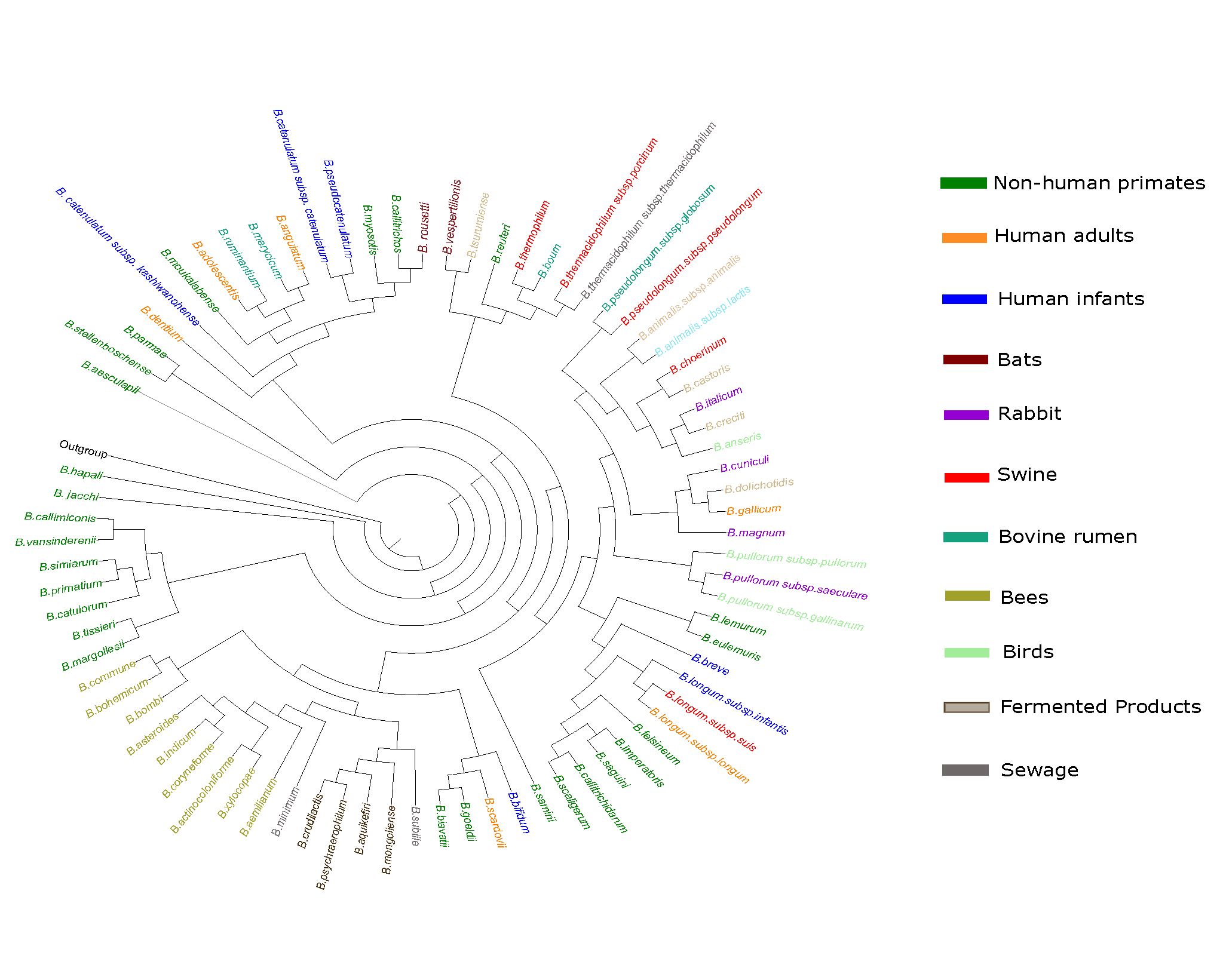March 05, 2020
Genome-scale comparative analysis of probiotic bacteria: insight into bifidobacterial host adaptation
SOKENDAI Student Dispatch Program program year: 2019
Maria Altaf Satti, Genetics

Phylogenetic tree of genus Bifidobacterium based on the concatenated amino acid sequences of 355 core genes of all type strains. Tree was constructed by merging the common protein sequences in all the strains. The tree shows the evolutionary relationship of bifidobacterial species isolated from different sources. Each strain is highlighted by the color representing its isolation source.
Probiotics are live microorganisms which, when ingested, impart beneficial health effects. Bifidobacterium is among the major probiotic group, present in wide range of ecological conditions. For these beneficial properties, certain species/strains of the genus Bifidobacterium is widely commercialized as probiotics in the food industry, especially in dairy companies. To interact with the host the microorganisms have evolved specific strategies. The mechanisms by which Bifidobacterium interact with its host and adapt to its wide range of ecological conditions has not yet been elaborated. The aim of this study is to investigate the adaptation of bifidobacterial species to various hosts and to examine the genetic biodiversity of bifidobacterial species from various hosts like human, non-human primates, bat and other organisms by decoding genome sequences.
In this study a genome wide comparative analysis of bifidobacterial species from different hosts was done. Our genomic analyses support the hypothesis that bifidobacterial strains have been subjected to genetic adaptations to their host environment. The comparative analysis in this study has revealed the important features of bifidobacteria in various hosts such as their contribution in metabolizing the host dietary carbohydrates. We also have identified the groups based on glycosyl hydrolases involved in carbohydrate metabolism in correlation with the host dietary habits. These results suggest that dietary habits of the host play an important role in bifidobacterial adaptation.
For this study we are collaborating with Laboratory of Microbiologia, Department of Agricultural Food Sciences, Bologna University, Italy. I visited Bologna University from September 6th to October 24th, 2019 under the SOKENDAI student dispatch program. During my visit I worked on the phylogenetic analysis of novel species of Bifidobacterium . Overall the experience of this internship is fruitful in terms of broadening my research, communicating with international researchers and getting their perspective.
Genetics,Maria Altaf Satti
